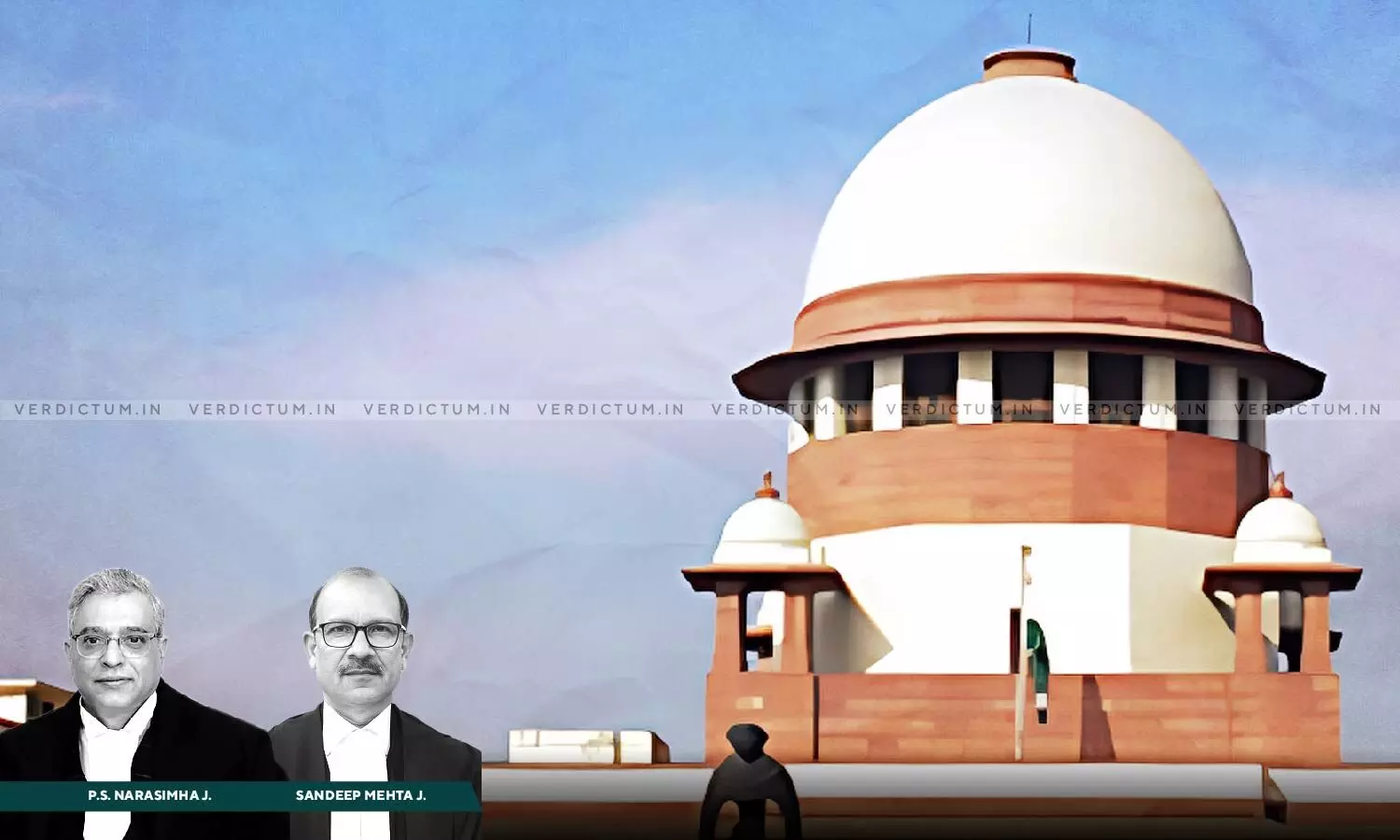
Cannot Expect A Party To Retain Books Of Accounts After 13 Years Of Transaction & Repaying Loan: Supreme Court
 |
|The Supreme Court recentlyobserved that once the transactions are completed and the loans are repaid, there is no reason for a party to entertain a belief that after a period of about 13 years, they would be required to present the account books pertaining to transactions.
The genesis of the matter lies in promulgation of the Special Court (Trial of Offences relating to transactions in Securities) Act, 1992, which aimed to address large-scale irregularities in securities transactions. These irregularities involved collusion between share brokers and employees of Banks and Financial Institutions (FIs), leading to the diversion of funds from banks/FIs to individual broker accounts. The Act established a Special Court to ensure speedy recovery of diverted funds, punish wrongdoers, and restore public confidence in security transactions and financial institutions' integrity.
Noting the arguments, a bench of Justice PS Narasimha and Justice Sandeep Mehta observed, “The appellants herein took a categoric stand in their depositions that they had returned the amounts borrowed from respondent Nos. 6, 7 and 8, but the books of accounts were not available because of lapse of time. The said plea of the appellants herein could not be treated as unnatural or an afterthought because once the transactions were completed and the loans were repaid, there was no reason for the appellants to have entertained a belief that after a period of about 13 years, they would be required to present the account books pertaining to transactions. It was neither a requirement in law nor could it be expected from the appellants herein to retain the books of accounts after more than a decade of the alleged suspicious transactions”.
Consequentially, the Bench noted that the conclusions arrived at by the Special Court that the appellants failed to prove the fact that the amounts had been repaid to the benami companies of the notified person, could not stand to scrutiny and cannot be sustained as being contrary to facts and law.
The facts of the matter lie in Section 3(2) and Section 3(3) of the Special Court (Trial of Offences relating to transactions in Securities) Act, 1992, which dictate the automatic attachment of properties upon notification of an individual under the Act. The notification against Pallav Sheth (respondent no. 2), issued on October 6, 2001, implicated his properties, leading to the central question of the appellants' liabilities towards entities linked to Sheth. Subsequently, proceedings were initiated against Pallav Sheth, who defaulted on a consent decree to pay over Rs. 51 crore to the Custodian on behalf of Fairgrowth Financial Services Limited (FFSL).
Further complexities emerged when it was alleged that Suman L. Shah and Laxmichand Shah had borrowed significant sums from entities linked to Pallav Sheth, who was declared insolvent. The Custodian, armed with information regarding these transactions, filed a miscellaneous application seeking recovery from the appellants.
The Special Court, after due consideration, directed Suman L. Shah to pay Rs. 50 lakhs and Laxmichand Shah to pay Rs. 25 lakhs to the Custodian, with interest, as these amounts were deemed due to entities linked to Pallav Sheth. The Court stipulated a timeframe for payment, failing which the Custodian could execute the orders as civil decrees.
The Special Court, by an order passed in miscellaneous application registered for initiating contempt proceedings against Sheth observed that respondent Nos. 4 to 8 were benami companies of respondent No.2-Pallav Sheth.
The appellants argued before the Special Court that any dues towards entities connected to Sheth, generated from borrowings made in 1996-1997, had been repaid. They contended that the Custodian, as the plaintiff, bore the primary burden of proving the existence of debts under Section 101 of the Evidence Act. Only upon discharging this primary burden could the onus shift to the appellants under Section 102 of the Evidence Act.
Pertinently, reliance was placed on a communication from the Income Tax Department by the Custodian to establish the appellants' debts. However, the absence of any witness from the Income Tax Department and failure to properly exhibit the communication raised questions about its admissibility.
It was further asserted by the appellants that they had returned the borrowed amounts, albeit lacking documentary evidence due to the passage of time. The same assertion, deemed reasonable given the elapsed time and absence of legal obligation to retain such records, cast doubt on the Custodian's claims.
Accordingly, while allowing the appeals, the bench directed the amounts deposited by the appellants in furtherance of the order dated March 14, 2014 to be reimbursed to them.
Cause Title: Suman L. Shah v. The Custodian & Ors. [Neutral Citation: 2024 INSC 170]
Click here to read/download the Judgment